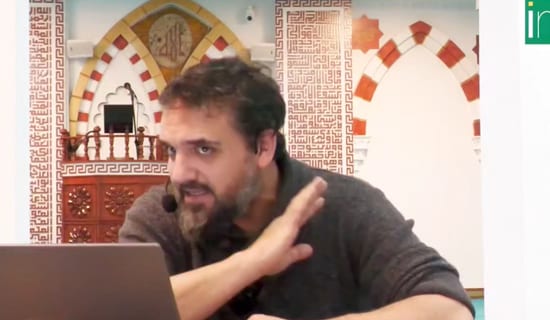In his October 13, 2015 column in the Egyptian daily Al-Shuruq, Egyptian political scientist Amr Hamzawy wrote about the culture of the Jews of Egyptian extraction and their continued "love for the homeland that was." Clarifying that he was writing from a purely human perspective and setting aside questions of Palestinian-Israeli politics, Hamzawy called on his fellow Egyptians to open a frank discussion about the country's expulsion of its Jews in the 1950s and 1960s.
The following are excerpts:[1]

Source: shorouknews.com
"The Years Following The 'Displacement' Held For Them Precisely What They Had Feared When Their Ships Left The Shores Of Egypt: The Trip Was One-Way, With No Return Tickets"
"It is an odd thing, these people who were forced to leave Egypt in the 1950s and 1960s. They left it knowing no other homeland, and most of them did not know their final destination. The majority came upon safe havens in which to stay, settle down, and work, in a number of European countries and in the United States.
"The years following the 'displacement' held for them precisely what they had feared when their ships left the shores of Egypt: The trip was one way, with no return ticket.
"These are the Jews of Egypt, only a handful of whom knocked on Israel's door, and about whom I am writing today as a human concern, without any connection to politics.
SUPPORT OUR WORK

"The strange thing about them is that in successive generations they have preserved their Egyptian identity, defining it as an emotional connection, a cultural identity, and a constant interest in... the homeland that was... Those who left Egypt in their 20s, 30s, or 40s, and who as mothers and fathers brought their children to Western societies, still use Arabic intensively. Some have managed to pass it on to their children and grandchildren - though while some of the elderly use an Egyptian dialectic whose expressions and forms are from the 1950s and 1960s, the middle-aged and the young use literary Arabic. [This is because] their emotional connection to Egypt prompted them to gain or refine their linguistic skills, and they studied [the language] academically - as do Westerners interested in Egypt or in the Arab countries in general."
The Egyptian Jews Remember "Human Solidarity... From [Both] Muslim And Christian Egyptians" - As Well As "Negativity, Vengefulness... And Denial Of Their Rights... From Other Egyptians"
"As for the [displaced Jews'] emotional connection to Egypt, its main source is the memories of those who left the places where they lived, studied, and worked. [These memories are] of their neighbors and the particulars of social life; of intellectual, artistic, and political activity; ...of the human solidarity some [of the Jews] received from Muslim and Christian Egyptians when they were collectively punished with displacement and were unwillingly embroiled in issues of the Arab-Israeli conflict; and also of the negativity, vengefulness... greed, exploitation, and denial of their rights that they encountered from other Egyptians...
"An additional source of this emotional connection is [their] continued fondness for Egyptian culture and its various forms of creative expression: music, song, cinema, and popular culture... and likewise the[ir] continued interest in current events in Egypt..."
The Egyptian Jews' Culture Of Remembrance "Should Drive Us In Egypt To Frankly And Sincerely Discuss... The Displacement, Oppression, And Collective Punishment Forced On The Jews Of Egypt In The 1950s And 1960s"
"Today I am not talking about politics, and I am not concerned with the various positions of the Egyptian Jews living in Western societies regarding the Palestinian people's right to self-determination - which some of them justly affirm and others wrongly deny. And I am not concerned with those who regularly visit Israel, or with those who refrain from doing so out of rejection of the occupation, the crime of settlement, and the violation of the Palestinians' rights and liberties.
"Today I am not concerned with any of that. I am just taking note of this singular case of the culture of remembrance and the safeguarding of a love for the homeland that was... [It] should drive us in Egypt to frankly and sincerely discuss the facts about the displacement, oppression, and collective punishment forced on the Jews of Egypt in the 1950s and 1960s - which call for a culture of remembrance of a different sort [in Egypt].
Endnote:
[1] Al-Shuruq (Egypt), October 13, 2015.




